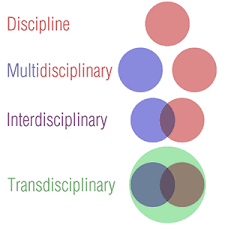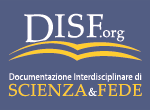The Nine-Year Outlook of the
Albertus Magnus Interdisciplinary Study Program
Reappraising the human within science,
not against science
Here is a general outlook of the Albertus Magnus program, arranged on 9 academic years, three triennia. This general outlook can be worked out in more specific topics according to the educational need of the program, but always coherently with the following fundamental structure.
Triennium A: The question about foundations
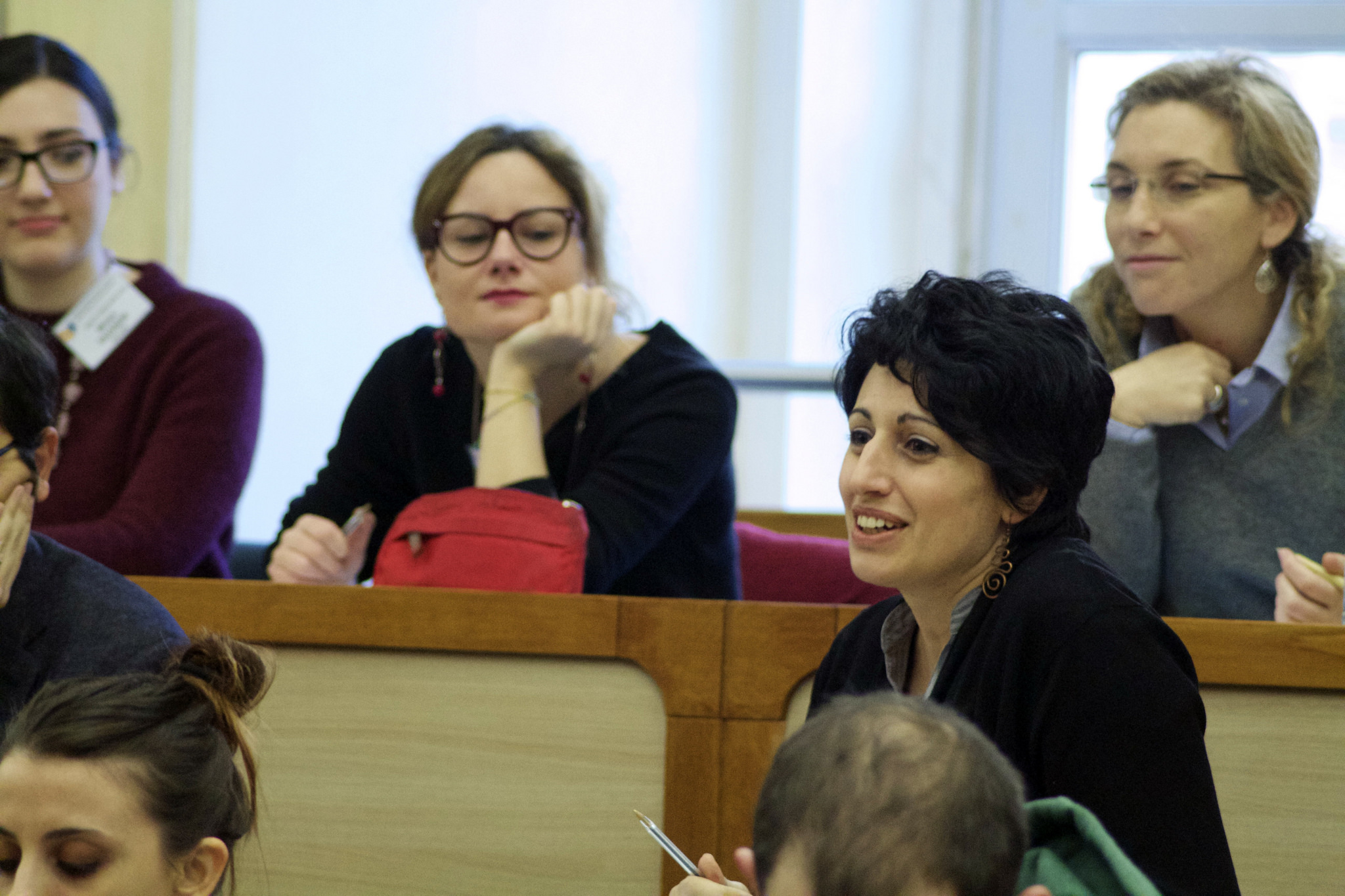 The scope of the seminars of this triennium is to show that scientific activity can operate thanks to philosophical, historical and anthropological foundations which make possible the very language and method of science. Above all, the educational program will emphasise that scientific enterprise needs to reflect upon the notion of truth, without which any scientific effort would be groundless. Accordingly, the seminars will highlight that each discipline (formal, natural and human) presupposes specific philosophical and anthropological views. These views also affect the development and import of such disciplines. Moreover, the outlook of the human sciences is based on a specific view of the human being. In order to take into account this cognitive dynamism we need an expanded notion of reason which includes the philosophical and anthropological foundations of each field of knowledge.
The scope of the seminars of this triennium is to show that scientific activity can operate thanks to philosophical, historical and anthropological foundations which make possible the very language and method of science. Above all, the educational program will emphasise that scientific enterprise needs to reflect upon the notion of truth, without which any scientific effort would be groundless. Accordingly, the seminars will highlight that each discipline (formal, natural and human) presupposes specific philosophical and anthropological views. These views also affect the development and import of such disciplines. Moreover, the outlook of the human sciences is based on a specific view of the human being. In order to take into account this cognitive dynamism we need an expanded notion of reason which includes the philosophical and anthropological foundations of each field of knowledge.
Year 1: The need for a philosophical reflection on science
- The philosophical foundations of scientific activity
- The anthropological foundations of human sciences
- The question of truth in philosophy and in the sciences
- Judaeo-Christian Revelation and rational knowledge: historical-philosophical tenets in the relationships between faith and reason
Year 2: The philosophical foundation of specific disciplines
- Physical cosmology and the question about the foundation of being
- The views on foundations in logical and mathematical thought
- The views of form and information in the life sciences
- The problem of the foundations in law and economics
Year 3: Anthropological foundations of society and science
- The anthropological and personal dimensions of scientific research
- Scientific progress and human progress
- Science and society: law, economics and communication
- The autonomy of the sciences and freedom of inquiry
Triennium B: Views on nature, conceptions of the human being, and images of the Foundation
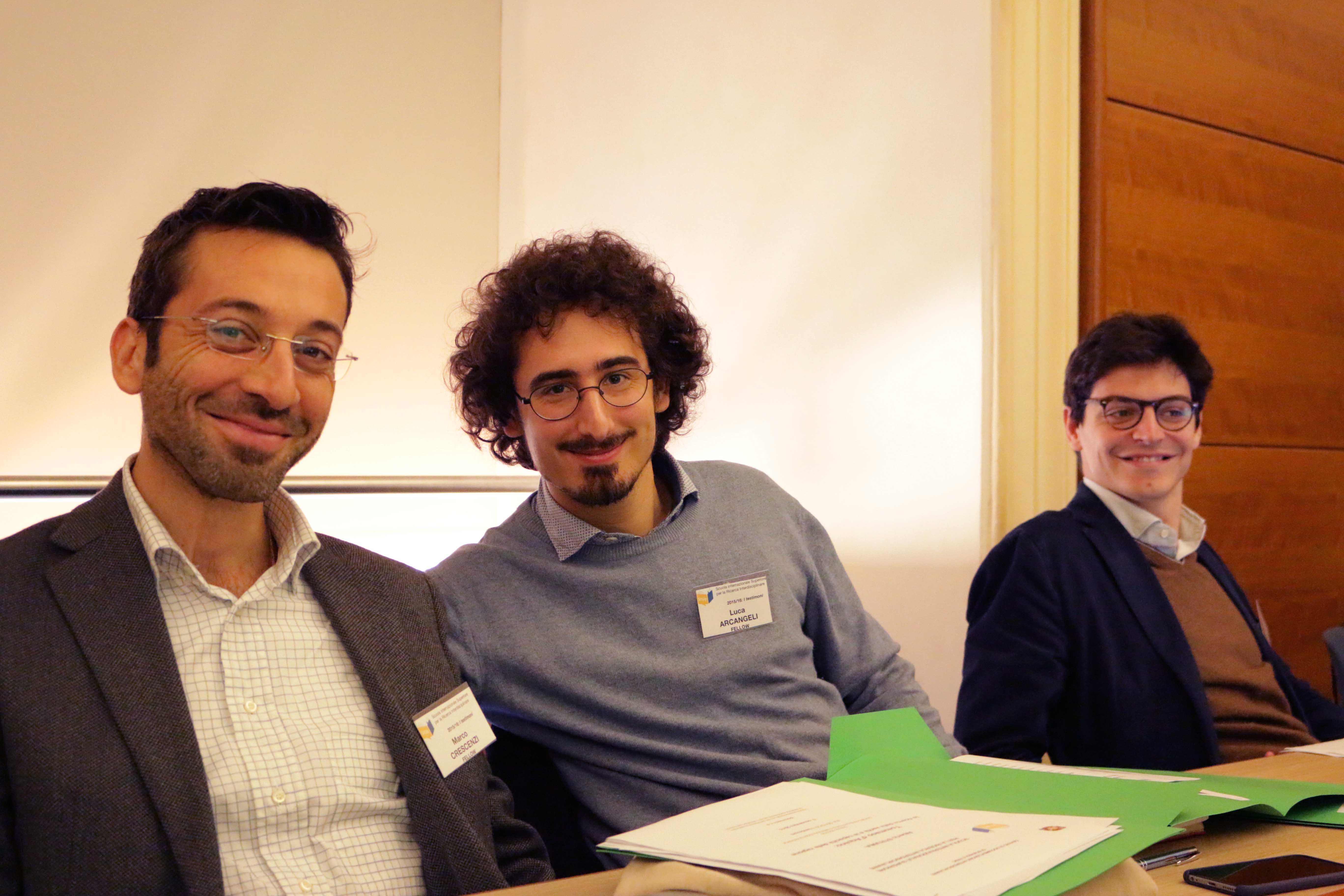 This second triennium is aimed at showing that our knowledge of nature, the questions of human life and the longing for ultimate meaning have been expressed over time through philosophical categories, images and paradigms full of history and implications. Work in both the natural sciences and human sciences implicitly uses many of these categories and views, sometimes neglecting the complexity of the historical vicissitudes that have shaped them. Deepening their origin and philosophical legacy will help the mindful use of many scientific notions. The seminars of this triennium are intended to show how the views of nature and the images of the human being are linked to our understanding of the Foundation, and also to explore how long their heritage has been and how these views and images have reached the contemporary age.
This second triennium is aimed at showing that our knowledge of nature, the questions of human life and the longing for ultimate meaning have been expressed over time through philosophical categories, images and paradigms full of history and implications. Work in both the natural sciences and human sciences implicitly uses many of these categories and views, sometimes neglecting the complexity of the historical vicissitudes that have shaped them. Deepening their origin and philosophical legacy will help the mindful use of many scientific notions. The seminars of this triennium are intended to show how the views of nature and the images of the human being are linked to our understanding of the Foundation, and also to explore how long their heritage has been and how these views and images have reached the contemporary age.
Year 4: Views of Nature
- Nature as an Absolute
- Nature as a Living Organism
- Nature as a Clockwork
- Nature as a Book
Year 5: Conceptions of the Human Being
- The human being as “soma”
- The human being as mind
- Beyond the human being: the cyborg
- The human being as the image of God: person in relation
Year 6: Images of “the Foundation”
- Chaos and chance: the absence of the Foundation
- All is One: contemporary forms of neo-pantheism
- The cosmic code: contemporary forms of neo-deism
- The creative Word: The Creator-Logos of the Judaeo-Christian tradition
Triennium C: Search for truth and the Revelation of the Logos
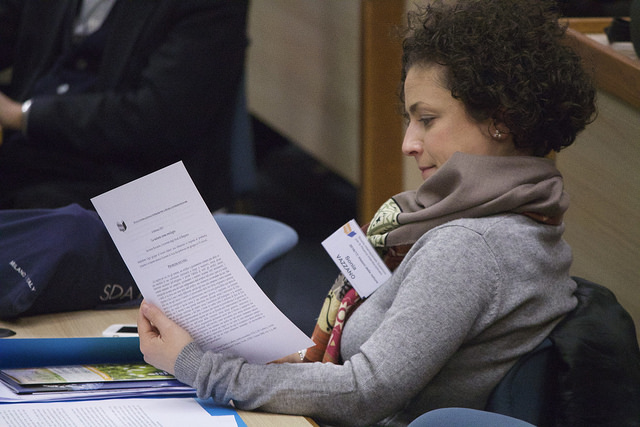 The final triennium tackles fundamental philosophical concepts, and highlights how their understanding affects the debate between science, philosophy and theology. All the seminars engage in a fruitful dialogue with theology in order to know if questions left open by science and philosophy could find any useful suggestions from the Judaeo-Christian Revelation. This requires putting the notion of truth (as attained through science and philosophy) in a fruitful tension with the notion of Logos (as emerging from the Christian religious tradition), and will take into account the mediation offered by Ancient-Greek philosophy. The interdisciplinary engagement of theology goes so far as to cope with paramount questions like the Christological dimension of nature and history, and the attribute of God as Life when understood in a cosmic context.
The final triennium tackles fundamental philosophical concepts, and highlights how their understanding affects the debate between science, philosophy and theology. All the seminars engage in a fruitful dialogue with theology in order to know if questions left open by science and philosophy could find any useful suggestions from the Judaeo-Christian Revelation. This requires putting the notion of truth (as attained through science and philosophy) in a fruitful tension with the notion of Logos (as emerging from the Christian religious tradition), and will take into account the mediation offered by Ancient-Greek philosophy. The interdisciplinary engagement of theology goes so far as to cope with paramount questions like the Christological dimension of nature and history, and the attribute of God as Life when understood in a cosmic context.
Year 7: Epistemological tenets
- Causality and analogy
- Finality and indeterminism
- The notion of “laws of nature” among science, philosophy and theology
- Complexity and system-thinking
Year 8: Exigencies of knowledge
- The truth is knowable: hermeneutics, phenomenology and metaphysics
- Realism and idealism in philosophical and scientific knowledge
- Truth and history: the claims of relativism and pluralism
- The human being as a truth-seeker: the emergence of ultimate questions in scientific activity
Year 9: Christian Revelation and scientific thought
- The role of Judaeo-Christian theology in the development of the scientific thought
- The question on God: its meaning in the sciences
- The Christological dimension of nature and history
- The Revelation of God as Life and the biology of living beings

